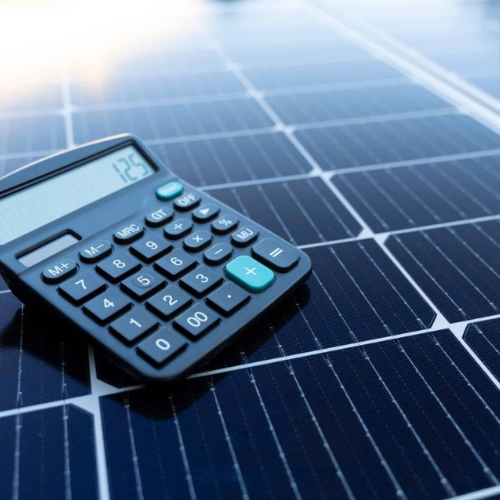Contents
As the world increasingly turns to renewable energy sources, solar power has emerged as a leading contender in the quest for sustainable energy solutions. Among the various technologies available, n-type solar panels have gained significant attention for their innovative design and superior performance characteristics. Unlike their p-type counterparts, n-type panels utilize a different doping process that enhances their efficiency and longevity.
This article will delve into the unique advantages of n-type solar panels, exploring their increased efficiency, durability, and overall performance in various conditions. You may find yourself wondering what sets n-type solar panels apart from traditional options. The key lies in their construction and the materials used.
N-type panels are made with silicon that has been doped with phosphorus, which allows for a higher level of electron mobility. This fundamental difference not only improves the energy conversion efficiency but also contributes to a range of other benefits that make n-type panels an attractive choice for both residential and commercial applications. As you explore the world of solar energy, understanding these distinctions will empower you to make informed decisions about your energy needs. Get your free solar assessment at https://www.solarenergy4u.org/free-pro-advice/.
Key Takeaways
- N-Type solar panels offer increased efficiency and performance compared to traditional solar panels.
- They also provide improved durability and longevity, making them a more reliable option for solar energy generation.
- N-Type solar panels demonstrate enhanced performance in high temperatures, making them suitable for a wider range of climates.
- These panels also show reduced light-induced degradation, ensuring a longer lifespan and consistent performance.
- Additionally, they exhibit lower degradation from potential-induced degradation, further increasing their reliability and efficiency.
Increased Efficiency and Performance
One of the most compelling reasons to consider n-type solar panels is their remarkable efficiency. These panels typically achieve higher energy conversion rates compared to p-type panels, often exceeding 20% efficiency. This means that more sunlight is converted into usable electricity, allowing you to generate more power from the same amount of sunlight.
If you are looking to maximize your energy output, n-type panels could be the ideal solution for your solar installation. In addition to their higher efficiency, n-type solar panels also exhibit superior performance under various environmental conditions. They tend to perform better in low-light situations, such as cloudy days or during dawn and dusk.
This characteristic can be particularly beneficial if you live in an area with frequent overcast weather. By choosing n-type panels, you can ensure that your solar system remains productive even when sunlight is less than optimal, ultimately leading to greater energy yields throughout the year.
Improved Durability and Longevity

Durability is another significant advantage of n-type solar panels. These panels are designed to withstand harsh environmental conditions, including extreme temperatures, high humidity, and even hail. The materials used in their construction are less prone to degradation over time, which means that you can expect a longer lifespan from your investment.
If you are concerned about the longevity of your solar system, n-type panels offer a compelling case for their resilience. Moreover, many manufacturers back n-type solar panels with robust warranties that reflect their confidence in the product’s durability. You may find warranties extending up to 25 years or more, which is a testament to the expected lifespan of these panels.
This long-term assurance not only provides peace of mind but also enhances the overall value of your solar investment. By opting for n-type technology, you are making a choice that prioritizes both performance and longevity.
Enhanced Performance in High Temperatures
| Temperature (°C) | Performance Level |
|---|---|
| 25 | 100% |
| 30 | 95% |
| 35 | 90% |
| 40 | 85% |
If you live in a region that experiences high temperatures, you may be particularly interested in how n-type solar panels perform under such conditions. One of the standout features of these panels is their ability to maintain efficiency even when temperatures soar. Traditional p-type panels often suffer from decreased performance as temperatures rise, leading to what is known as thermal degradation.
In contrast, n-type panels are less affected by heat, allowing them to continue generating electricity effectively. This enhanced performance in high temperatures can translate into significant energy savings for you. When your solar panels operate efficiently during hot summer months, you can rely on them to meet your energy demands without compromising on output.
This reliability can be especially crucial if you depend on solar power for air conditioning or other cooling systems during peak heat periods. By choosing n-type solar technology, you are investing in a solution that can withstand the challenges posed by extreme weather conditions.
Reduced Light-Induced Degradation
Light-induced degradation (LID) is a phenomenon that affects many solar panels, leading to a decrease in efficiency over time due to prolonged exposure to sunlight. N-type solar panels are designed to minimize this effect significantly. The unique doping process used in their manufacturing helps reduce the susceptibility to LID, ensuring that your investment retains its efficiency for a longer period.
By opting for n-type technology, you can enjoy peace of mind knowing that your solar system is less likely to experience the performance drops associated with LID. This advantage not only enhances the overall energy output but also contributes to lower maintenance costs over time. As you consider your options for solar energy solutions, understanding the implications of light-induced degradation will help you appreciate the long-term benefits of choosing n-type solar panels.
Lower Degradation from Potential-Induced Degradation

Understanding Potential-Induced Degradation (PID)
In addition to light-induced degradation, potential-induced degradation (PID) is another concern for solar panel owners. PID occurs when voltage differences between the panel and its surroundings lead to power loss over time.
N-Type Solar Panels: A Solution to PID
N-type solar panels are engineered to be more resistant to PID compared to their p-type counterparts. This resistance means that you can expect a more stable performance from your n-type system throughout its lifespan.
Long-Term Benefits of N-Type Technology
The lower degradation rates associated with n-type technology can have a profound impact on your overall energy production and financial returns. With reduced losses due to PID, your solar investment can yield higher energy outputs over time, translating into greater savings on your electricity bills.
Enhancing Your Long-Term Energy Strategy
As you weigh the options available for your solar installation, consider how the resilience of n-type panels against potential-induced degradation can enhance your long-term energy strategy.
Potential for Higher Energy Yields
When it comes to solar energy systems, maximizing energy yields is often a top priority for homeowners and businesses alike. N-type solar panels offer significant potential for higher energy yields due to their combination of efficiency, durability, and resistance to various forms of degradation. By harnessing more sunlight and maintaining performance over time, these panels can help you achieve greater energy production than traditional options.
The implications of higher energy yields extend beyond mere numbers; they can also influence your financial bottom line. With increased electricity generation comes the potential for reduced reliance on grid power and lower utility bills. If you are considering investing in solar technology, understanding how n-type panels can enhance your energy yields will empower you to make a choice that aligns with your financial goals and sustainability aspirations.
Conclusion and Future Potential
In conclusion, n-type solar panels represent a significant advancement in solar technology, offering numerous advantages over traditional p-type options. From increased efficiency and performance to improved durability and resistance to degradation, these panels provide a compelling case for anyone looking to invest in renewable energy solutions. As you navigate the landscape of solar technology, it is essential to consider how these benefits align with your specific needs and goals.
Looking ahead, the future potential of n-type solar technology appears promising. As research and development continue to advance, we can expect further improvements in efficiency and performance metrics. The growing demand for sustainable energy solutions will likely drive innovation in this field, making n-type panels an increasingly viable option for a broader range of applications.
By staying informed about these developments, you can position yourself at the forefront of the renewable energy revolution and make choices that contribute positively to both your financial future and the health of our planet.
If you are interested in learning more about the components of solar panels, you should check out this informative article on solarenergy4u.org. Understanding the different parts of a solar panel, such as the n-type solar cells, can help you make an informed decision when choosing a solar energy system for your home. This website also offers valuable information on solar quotes and costs, as well as other topics related to solar energy. Be sure to visit solarenergy4u.org for more insights into the world of solar power.
FAQs
What are n type solar panels?
n type solar panels are a type of solar panel that use silicon as the base material. They are known for their high efficiency and durability, making them a popular choice for residential and commercial solar installations.
How do n type solar panels differ from other types of solar panels?
n type solar panels differ from other types of solar panels, such as p type panels, in the way the silicon is doped. In n type panels, the silicon is doped with elements such as phosphorus, which creates an excess of electrons, resulting in a negative charge. This allows for better electron flow and higher efficiency compared to p type panels.
What are the advantages of n type solar panels?
n type solar panels offer several advantages, including higher efficiency, better performance in high temperatures, and lower degradation over time. They also have a lower risk of potential induced degradation (PID) and are less prone to light-induced degradation (LID).
Are n type solar panels more expensive than other types?
n type solar panels are generally more expensive than p type panels due to the more complex manufacturing process and the use of higher quality materials. However, their higher efficiency and longer lifespan can make them a cost-effective choice in the long run.
Can n type solar panels be used in all types of solar installations?
Yes, n type solar panels can be used in a variety of solar installations, including residential, commercial, and utility-scale projects. They are compatible with most solar inverters and mounting systems, making them a versatile option for different applications.








